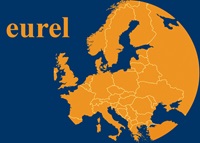The relationship between religion and politics has undergone significant transformations in Eastern Europe and the post-Soviet space. In recent decades, religion has gained increasing influence in shaping national identities, political agendas, and state ideologies. This shift has led to a complex interplay between religious institutions and governments, with varying degrees of regulation, support, and control. Religious policy has thus become a crucial element in understanding state-building processes, democratization efforts, and geopolitical alignments.
The South Caucasus presents a particularly illustrative case for examining these dynamics. Since gaining independence in 1991, Armenia, Azerbaijan, and Georgia have each pursued distinct approaches to religious governance, reflecting historical legacies, internal political changes, and external influences. While Armenia and Georgia have deep-rooted Christian traditions that play a central role in their national identity and state relations, Azerbaijan's secular framework is shaped by its Soviet past and geopolitical considerations, including relations with Turkey, Iran, and Russia. These diverging approaches have resulted in differing levels of religious freedom, state intervention, and political instrumentalization of religion.
This paper explores the evolution of religious policies in the South Caucasus, analyzing their interplay with the public role of dominant religious institutions in shaping both national identities and political opposition. It investigates the legal frameworks governing religion, and the extent to which governments regulate or co-opt religious actors. Furthermore, it considers the influence of external actors, such as the European Union, Russia, on the region's religious landscape and policy.
By comparing the cases of Armenia, Azerbaijan, and Georgia, this study aims to contribute to a broader understanding of the role of religion in post-Soviet state-building and political transformation. It highlights how religious policies serve not only as tools of governance but also as mechanisms for navigating national and international pressures. This analysis provides valuable insights into the intersection of religion, politics, and identity in a region marked by historical tensions and contemporary geopolitical challenges. Given the growing scholarly and policy interest in the decolonization of academic perspectives on the post-Soviet space, this paper also contributes to discussions on the challenges faced by small states in maintaining sovereignty and political stability under the influence of global and regional powers.
Depending on the time available, a comparison of the three countries can be presented or the comparison can be limited to one or two countries.

 PDF version
PDF version
